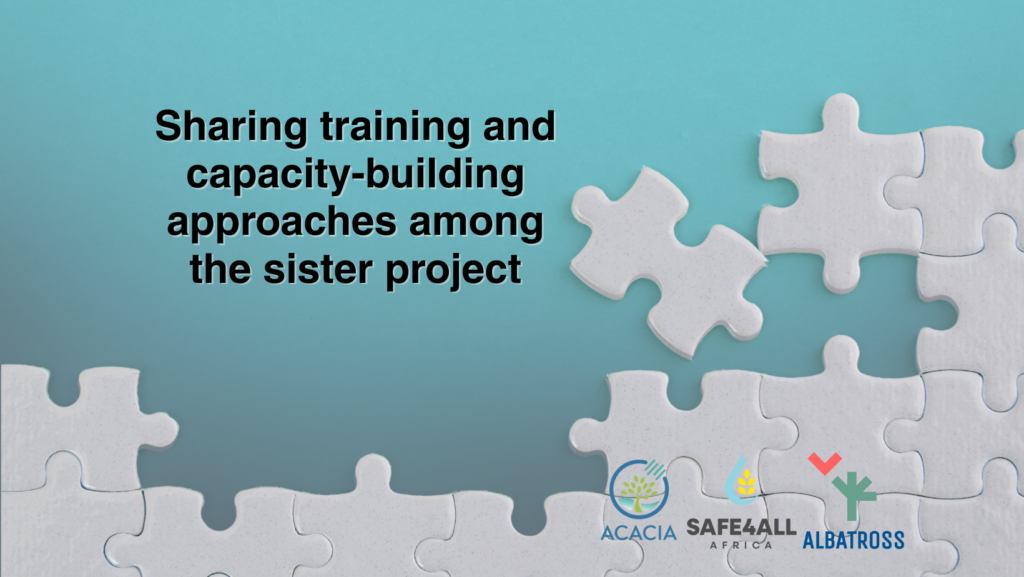Sharing training and capacity-building approaches among the sister project

On 12 May 2025, a webinar among the sister projects took place, in which more than 50 partners from the three projects funded under the same Horizon Europe call participated.
The objective of this webinar was to learn about each project’s approach to training and capacity building, that is, to understand what the three projects are doing in this regard, seek synergies, and learn from each other.
The ACACIA project approach started with assessing training needs in the communities where they work in Ethiopia and Madagascar. Based on this, they will co-design workshops, organise annual schools, and engage in regional gatherings. For now, they have started the assessment activities, which include field visits to meet the communities, surveys and interviews, literature reviews, and consultations among partners. The training and capacity-building ideas they have are related to sub-seasonal forecast training and climate risk schools.
The SAFE4ALL project has designed its Onboarding Learning Program to train the communities with whom they are working in Ghana, Kenya and Zimbabwe on climate topics and bring them the climate tools and services they will develop to support stakeholders. Their approach is defined by a triple A (analysis-ambition-action), and will provide training and capacity building in different spheres, from technical champions to end-users. They have already carried out some surveys and workshops, and intend to continue assessing learning on Living Labs.
Meanwhile, ALBATROSS builds its training and capacity-building approach on five pillars: on the one hand, the project continues with the Summer School that began another project on nature-based solutions. On the other hand, it contributes to the Climate Outlook Fora of the World Meteorological Organization by providing training resources in different thematic areas. Besides, it participates in the organisation of the SDG Olympiad, a global competition where students develop data-driven solutions to accelerate progress toward the United Nations Sustainable Development Goals (SDGs). The project has also organised a Mentorship Program to foster knowledge exchange between experts and local practitioners, carrying out capacity-building activities for the hubs in the CRD network for the uptake of climate services and nature-based solutions, and will also prepare training materials.
Participants showed strong interest in the presentations from all three projects, sparking valuable ideas for continued discussion and collaboration. Several opportunities for future involvement in meetings and joint initiatives emerged, highlighting the promising and productive cooperation now taking shape between ACACIA, SAFE4ALL, and ALBATROSS.
Share on Facebook Share on Twitter Share on Pinterest